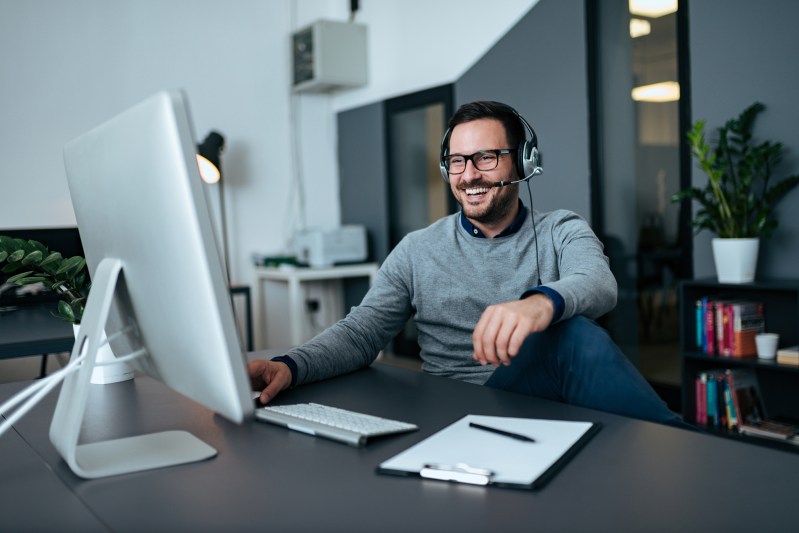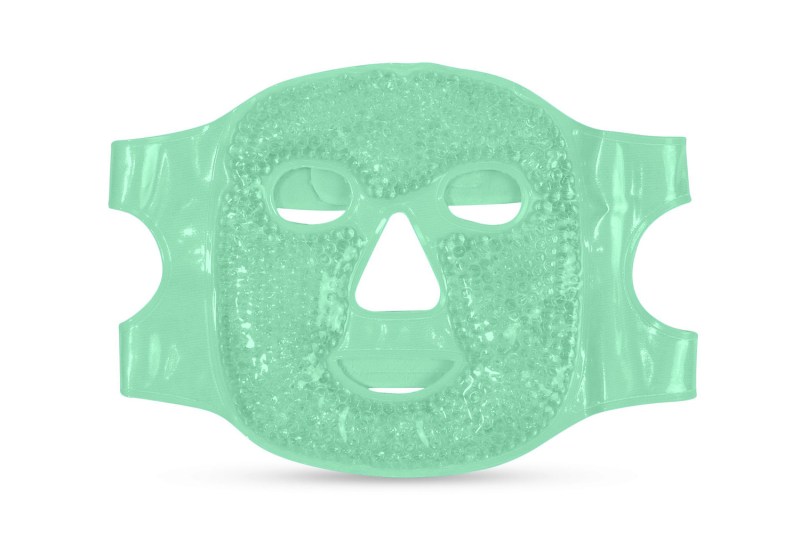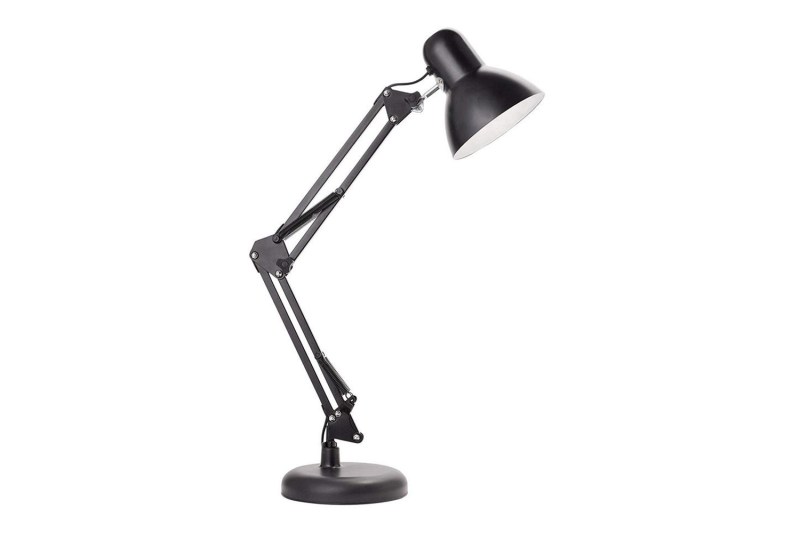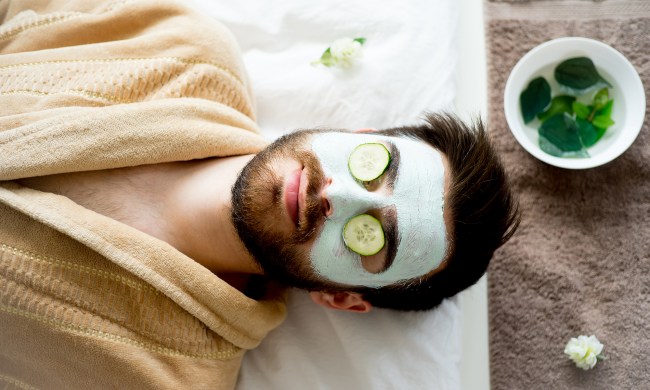
Thanks to the rise of video conferences in this new, hopefully brief era of working from home, we’ve never spent more time looking at ourselves. Firing up Zoom is like looking at a high-definition mirror where zits, dark circles, and blemishes are on full display, and the view isn’t always so pretty.
Unless you’re on-air talent, how your mug looks on Google Hangouts or Skype probably won’t be a deciding factor in your career trajectory, but showing your skin some TLC and adjusting your lighting and camera to a flattering angle before your conference calls could provide a confidence boost. And in the age of seemingly endless doom and gloom, we’ll take all the confidence we can get.
So read on for three ways to look better on camera, so you can channel your inner Ron Burgundy during quarantine.
Use an Ice Pack (Yes, Really)
PerfeCore Facial Mask

Waking up hungover or sleep-deprived leads to facial puffiness, which will show on camera. A solution? Use an inexpensive and highly effective ice pack mask that works like a cold compress for your face.
Simply store this mask in your freezer for a few hours, then place it on your face for about 15 to 30 minutes to tighten your skin and help relieve inflammation, redness, and puffiness.
Adjust Your Camera Angle
If you’ve ever accidentally turned on your phone’s FaceTime and caught yourself at a low angle, which makes your mug’s silhouette look akin to Jabba the Hut, you know that angles are everything when it comes to on-air presentation.
So when setting up your call, your camera should sit just above your eyes, slightly leaning forward for a flattering angle that highlights your eyes and cheekbones. You don’t have to buy a tripod or a separate webcam to pull this off. Simply stack books underneath your camera until it reaches the appropriate height.
Find Your Lighting
Half the battle to looking your best on camera comes down to lighting. In general, avoid filming yourself in a room with fluorescent or overhead lights, as the former casts unflattering shadows that highlight wrinkles, blemishes and acne scars, while the latter accentuates eye bags and sagging skin. And you don’t want a spotlight directly on your face, which washes your features out and makes you look like a ghost.
For best results, your source of light should come from behind the camera at a forty five degree angle to create natural shadows. This is the same technique that professional photographers use when shooting portraits.
Newhouse Lighting Black Architect Modern LED Lamp

You could pay extra and spend money on ring lights favored by beauty bloggers and Instagram influencers, but using an LED desk lamp with an adjustable clamp (shown above) should get the job done. Or, if you wanted to take advantage of natural light, set your workspace up so that the window is slightly off to your side.
Want to take your lighting game even further? Follow Tom Ford’s lead and place a sheet of white paper underneath your work space, which allows light to bounce off the sheet and onto your face to soften shadows for an ultra-flattering finish.


